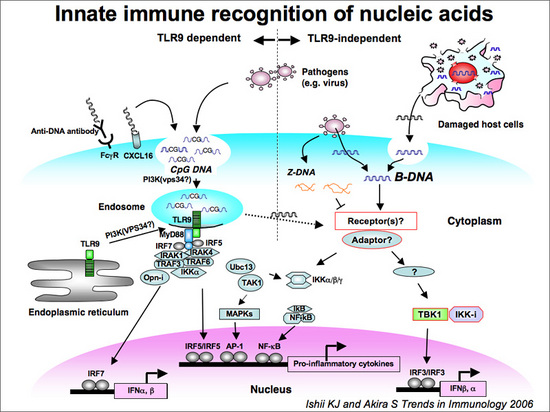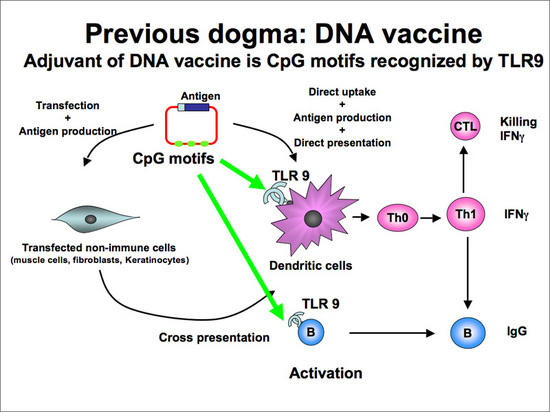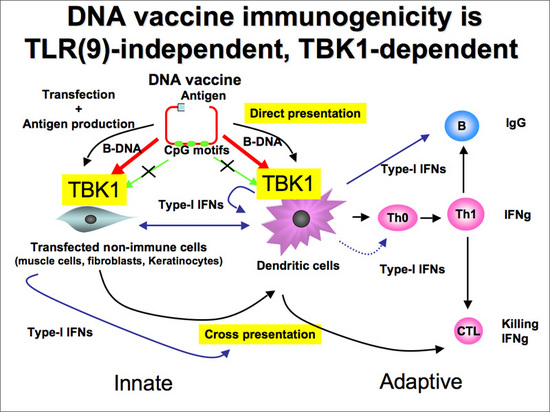News & Topics
TANK-binding kinase-1 delineates innate and adaptive immune responses to DNA vaccines. (Prof. Akira and Associate Prof. Ishii in Nature)
DNA vaccines induce adaptive immune responses, mainly through induction of type I interferons. Ken Ishii and colleagues use mice to show that this occurs by a mechanism that is independent of the activation of nucleic-acid-binding Toll-like receptors. Instead, some T-cell responses require activation of the TANK-binding kinase 1 (TBK1)-mediated innate immune signalling pathway in haematopoietic cells. In non-haematopoietic cells, TBK1 is critical for the activation of CD8 T cells. Therefore, in two distinct cellular mechanisms, TBK1 is a key player in DNA-vaccine-induced immunity.

![]()


Contact:
Shizuo Akira
Director: WPI Immunology Frontier Research Center, Osaka University
Research Director: Akira Innate Immunity Project, Japan Science and Technology Agency
3-1 Yamada-oka, Suita City, Osaka 565-0871, Japan
Tel: +81-6-6879-8303 Fax: +81-6-6879-8305
E-mail: sakira@biken.osaka-u.ac.jp
Ken Ishii
Associate Professor: Laboratory of Host Defense, WPI Immunology Frontier Research Center, Osaka University
Associate Professor: Department of Molecular Protozoology, Research Center for Infectious Disease Control, Osaka University
Group Leader: Akira Innate Immunity Project, Japan Science and Technology Agency
3-1 Yamada-oka, Suita City, Osaka 565-0871, Japan
Tel: +81-6-6879-8279 Fax: +81-6-6879-8283
E-mail: kenishii@biken.osaka-u.ac.jp
WPI Immunology Frontier Research Center, Osaka University Administration Section
3-1 Yamada-oka, Suita City, Osaka 565-0871, Japan
Tel: +81-6-6879-4275 Fax: +81-6-6879-8266
E-mail: ifrec-office@ifrec.osaka-u.ac.jp
URL: http://www.ifrec.osaka-u.ac.jp/
